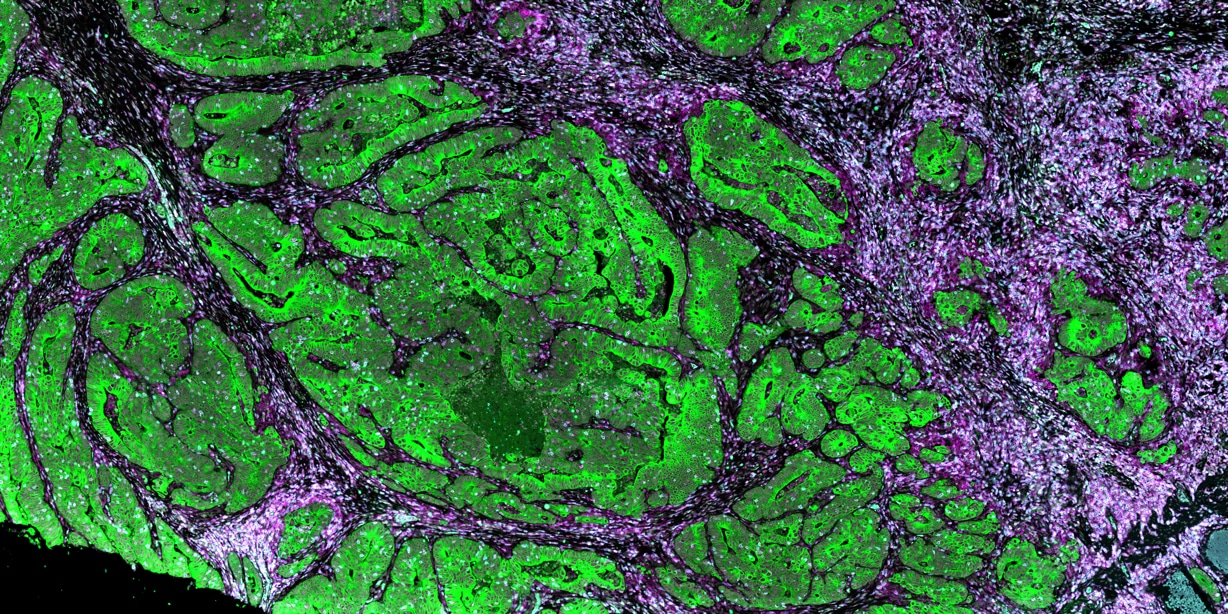
nCounter® Autoimmune Profiling Panel
Helping Your Research
Get insights into immune system dysfunction quickly with our comprehensive 770 gene multiplex panel for human or mouse to evaluate the pathways, processes, and cell types involved in autoimmune disease, chronic inflammatory disease, and immunotherapy-related adverse events. Analyze autoimmune biomarkers rapidly without the need for qPCR or NGS.
- Therapeutic mechanism of action (MOA) studies
- Immunotherapy-induced adverse event investigations
- Discovery/validation of disease and therapeutic specific biomarkers
- Development of predictive signatures of drug response
- Compatible with challenging sample types such as PBMCs and FFPE

Panel Selection Tool
Find the gene expression panel for your research with Panel Pro
Find Your PanelThe TruCulture-NanoString Solution for Immune Profiling
Recent publications (1,2) from the Milieu Interieur project at Institut Pasteur have shown the utility of the Myriad RBM TruCulture(1) whole blood collection and culture system paired with nCounter gene expression analysis.
For more information on the combined TruCulture-NanoString workflow, visit the Myriad TruCulture site.
Product Information
The 35 pathways and processes in this panel provide a comprehensive view into immune system dysfunction in autoimmune disease and treatment-induced adverse immune events.
The Autoimmune Profiling Panels include unique cell profiling signatures to measure the relative abundance of 14 different immune cell types1. The table below summarizes each cell type represented by gene content in the panel, as qualified through biostatistical approaches and selected literature in the field of immunology.
The Autoimmune Profiling Panel is designed to encompass adaptive and innate immune system dysfunction associated with six of the most common and debilitating autoimmune diseases. The table below describes the six conditions that were emphasized in creating this panel, along with induced adverse immune events associated with immunotherapy. While this panel was designed around these six diseases, it will provide powerful immune system information for the research of any autoimmune or chronic inflammatory disorder.
Content in the Autoimmune Profiling Panel includes targets for more than 30 approved and investigational therapies for autoimmune disease and chronic inflammatory disorders.
Related Resources






Publications
Conjunctival transcriptomics in ocular mucous membrane pemphigoid
PURPOSE: Ocular Mucous Membrane Pemphigoid (OcMMP) is an orphan disease characterized by chronic autoimmune-driven conjunctival inflammation leading to progressive scarring, debilitating symptoms, and blinding sequelae. This feasibility study aims to demonstrate conjunctival genetic transcriptomic analyses as a putative tool for interrogation of pathogenic signaling pathways in OcMMP.
Preclinical Evidence for the Glucocorticoid-Sparing Potential of a Dual Toll-Like Receptor 7/8 Inhibitor in Autoimmune Diseases
Toll-like receptor (TLR) 7 and TLR8 are single-stranded RNA-sensing endosomal pattern recognition receptors that evolved to defend against viral infections. However, aberrant TLR7/8 activation by endogenous ligands has been implicated in the pathogenesis of autoimmune diseases including systemic lupus erythematosus.
Therapeutically expanded human regulatory T-cells are super-suppressive due to HIF1A induced expression of CD73
The adoptive transfer of regulatory T-cells (Tregs) is a promising therapeutic approach in transplantation and autoimmunity. However, because large cell numbers are needed to achieve a therapeutic effect, in vitro expansion is required.
Request a Quote
Contact our helpful experts and we’ll be in touch soon.


